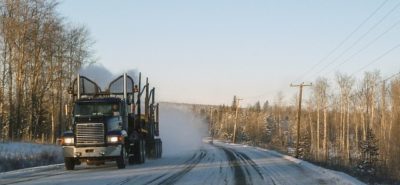The Federal Motor Carrier Safety Administration data on the annual rate of truck accidents shows that crashes are on the rise. Nationally, the number of truck accidents in the United States increased 11 percent between 2009 and 2012, fatalities rose by 16 percent and injuries by 43 percent. State crash data in Illinois indicates a similar trend.
In order to reduce the number of collisions involving commercial vehicles, the Federal Motor Carrier Safety Administration has created strict requirements to ensure safety on the roads. This includes Regulation FMCSR 392.14, which addresses hazardous road conditions that require extreme caution. Commercial vehicle operators are given a protocol to follow for bad weather driving that includes speed reduction for environmental risks. When safety is not guaranteed, drivers are required to find a place to stop until conditions improve.
Road conditions cause serious hazards
According to the U.S. Department of Transportation’s Federal Highway Administration’s Road Weather Management Program, there are more than 1 million weather-related accidents each year. These are identified by the presence of adverse weather conditions such as rain, ice, snow, fog or winds. The program compiled data on the average number of annual accidents, injuries and fatalities due to different road conditions between 2002 and 2012.
Rain is the most dangerous inclement weather condition, causing nearly 3,000 fatalities in the U.S. each year because of its effects on visibility, pavement friction and lane obstructions. It is also the contributor to the greatest percentage of traffic delays. Snow, ice and fog lead to about 2,400 fatal accidents, and an estimated 23 percent of the traffic delays.
Truckers often ignore regulations due to lack of enforcement
Trucking companies lose between 2.2 and 3.5 billion dollars due to weather-related delays each year, and this may lead to increased pressure on drivers to ignore conditions and operate at normal or even elevated speeds in spite of the requirement of 392.14. Federal regulations require truck drivers to slow down regardless of potential schedule issues, but it does not suggest or define the appropriate speed for wet pavement, high winds or snow, and many drivers have a lack of training when it comes to operating their vehicles in inclement weather.
An individual who is hurt in a car accident due to a truck driver’s lack of adjustment for inclement weather conditions may be able to receive compensation to cover damages, pain and suffering. An Illinois personal injury attorney can provide legal advice on the best way to proceed.

